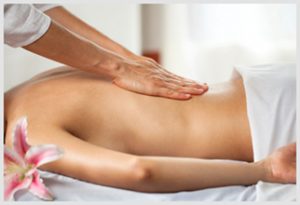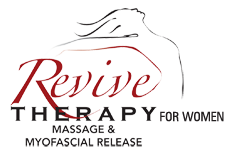Postpartum Massage
 Postpartum massage can be as important and beneficial as prenatal massage following normal and complex deliveries. Expert therapy by the certified postpartum therapist, who is also an RN will enhance your healing and recovery. Your new role as mother will be supported by compassionate healing with a nurse providing advanced holistic therapy for hope, health, and healing in your transitions to your maternal role.
Postpartum massage can be as important and beneficial as prenatal massage following normal and complex deliveries. Expert therapy by the certified postpartum therapist, who is also an RN will enhance your healing and recovery. Your new role as mother will be supported by compassionate healing with a nurse providing advanced holistic therapy for hope, health, and healing in your transitions to your maternal role.
Postpartum bodywork is an effective and holistic approach for the many adjustments to motherhood. You may be surprised to receive much more than a spa retreat.
Massage is well-known for relaxation, stress reduction, pain relief and other health benefits. Unique postpartum benefits include hormone regulation, reduced swelling, better sleep and improved breastfeeding. More advanced therapy helps restore your body to its pre-pregnancy condition, speeds healing and assists with C-section recovery.
The Benefits of Postpartum Massage
Postpartum massage has been shown to be effective for a quicker recovery and better health. Integration of maternal bodywork may add welcome value to your healing journey and transition to motherhood. Consider the many benefits:
Relaxation and Stress Reduction
Massage relaxes muscles, increases circulation and lowers stress hormones, bringing relaxation and stress relief. All body systems appreciate treatment after nine months of change, culminating with the delivery of the greatest miracle in life. Some women prefer lighter pampering massage while others enjoy deeper techniques to work out the knots. Adding myofascial release and craniosacral therapy reaches deeper into the body for more complete healing. Any of these massage styles will bring relaxation and stress reduction.
Anxiety and depression respond very well to skilled therapy. About two-thirds of new moms experience temporary postpartum blues related to hormonal changes, new responsibilities and adjustment frustrations. Emotional support and the other benefits of massage can help during this transition. Postpartum depression is a more serious, longer-lasting condition that affects 10–15% of mothers. Studies show massage to be beneficial for treating postpartum depression. Don’t hesitate to consult healthcare providers for assistance, including a postpartum body worker
Pain Relief
Residual body aches from pregnancy are normal. Adding breastfeeding and childcare can intensify arm, shoulder and back pain. Massage is an effective holistic approach that relaxes muscles and relieves pain without medication. A skilled therapist may also resolve even associated numbness and tingling. Chronic or severe pain may require multiple sessions for resolution.
Hormone Regulation
Massage greatly improves postpartum hormone balance. Estrogen and progesterone hormone levels are very high during pregnancy and decrease after delivery. Prolactin and oxytocin hormone levels rise to facilitate breastfeeding. Studies indicate that massage reduces the stress hormone cortisol. Certain essential oils may also bring hormone and mood balance.
Massage also reduces naturally occurring biochemicals associated with depression (dopamine and serotonin) and cardiovascular problems (norepinephrine), supporting Mom with the challenges of motherhood.
Decreased Swelling
Body fluids need to find balance after pregnancy, in which there was an increase of about 50% in fluid volume. Massage increases circulation and lymphatic drainage to facilitate elimination of excess fluids and waste products. Tissue stimulation assists your body to shift water to the right places. Swelling is also affected by hormones, which go through major changes after delivery. Massage helps hormone regulation, which also decreases swelling (see Hormone Regulation). Continue your high fluid intake for healing and lactation, even though you may still have swelling.
Better Sleep
Most new moms feel exhausted after labor and delivery, complicated with around-the-clock baby care. Massage will ease the fatigue, promote relaxation and assist with sleep. Studies have shown an increase in delta brain waves (those that accompany deep sleep) with massage therapy. That is why it is very common to fall asleep during a massage. Getting enough sleep is key to postpartum recovery. Everything improves when you feel rested! Arrange some help and get regular massages for better rest and sleep. One study correlated better sleep with losing the baby fat on the tummy!
Improved Breastfeeding
Breastfeeding is a beautiful gift to your newborn, but can also be a challenge for some moms. Massage therapy relaxes the body, increases circulation and increases milk production. Studies show that massage increases prolactin levels, a lactation hormone. Relaxation in the chest muscles opens the shoulders and improves lactation. New research indicates that breast massage helps relieve breast pain, decreases breast milk sodium and improves newborn suckling. Lymphatic drainage massage improves milk production and milk flow, especially with difficult lactation. Consult with your therapist about this service.
When Can a New Mother Start Massage?
You may start receiving postpartum massages as soon as you feel comfortable. Your therapists will position you comfortably if your abdomen or breasts are sore. The RN-Therapist at Revive Therapist is comfortable with maternal complications and will adjust therapy accordingly.
What Positions Are Safe for Massage?
Any position is safe after delivery, but may be adjusted for your comfort or specific treatment. Some moms crave being able to lie face-down again after lying on their sides for almost nine months. Others may be uncomfortable face-down because of breast discomfort or the distraction of leaking milk. The side-lying position can be comfortable and very effective to treat specific issues of the shoulders, pelvis or legs.
May I Bring Baby to My Appointment?
Many mothers want to leave their baby in good hands and take a break. However, some moms prefer to bring their newborn with them. Ask your therapist if newborns are welcome. Some therapists support the little visitor. Newborns usually sleep a lot and an experienced therapist will adjust the routine to Baby, if needed (breastfeeding, etc.). Extra time may be necessary if bringing the little one, so get approval in advance.
Aromatherapy during a Postpartum Massage
Holistic treatment with aromatherapy can be effective therapy for postpartum moms. Essential oils are pure extractions from plants and can assist with relaxation, hormone balance, cleansing, and treatment of anxiety or depression. Most high-quality oils are safe and non-allergenic after pregnancy, but let your therapist know if you are nursing. Most aromatherapy can be diffused into the air, added to lotion or applied topically. Inquire about the therapist’s expertise in this area and if there is an additional charge.
Recovery of Tummy Muscles, Pelvis and C-Section
Assessment and therapy is available for common postpartum healing of the abdomen and pelvis. Abdominal recti muscles gaps are common and can be corrected, the sooner the better. Pelvic muscles, vaginal scarring, pubic bone pain and bladder problems also respond to expert therapy. Revive Therapy provides advanced therapy for mothers healing from birth complications.
Swelling and Lymphatic Drainage Therapy
Pregnancy increases maternal fluid volume up to 50% and postpartum swelling is common. Lymphatic drainage therapy effectively decreases fluid volume, enhances immunity and optimizes lactation. Revive Therapy features advanced lymphatic drainage massage therapy for improved postpartum healing and recovery.
Include Postpartum Massage in Your After-Pregnancy Care
Massage can improve post-delivery recovery and health for many women. Supplement the guidance and advice of your medical care provider with massage to support the transition to your new maternal role. A trained therapist will assist you with physical, emotional and educational support as you find the joy of motherhood. Consult with your physician if you have had any complications or have concerns before beginning any new therapeutic practice.
This article by Steve Metzger was published by the American Pregnancy Association.
Resources
Your Health is Your Responsibility
Spanish Articles (Espanol)

